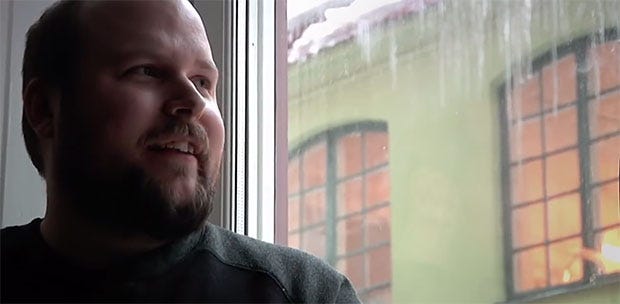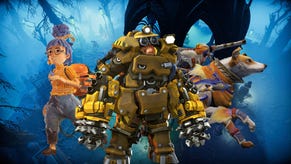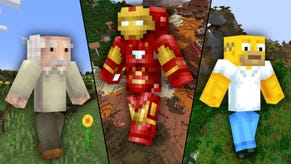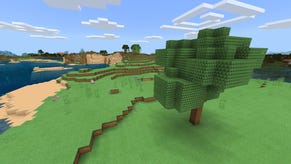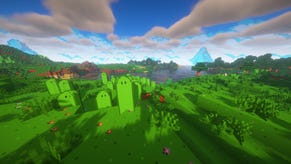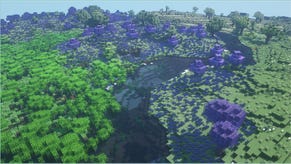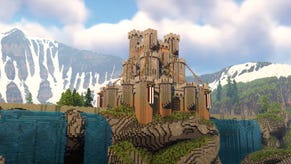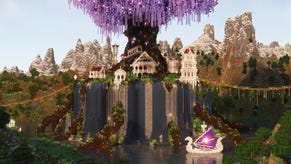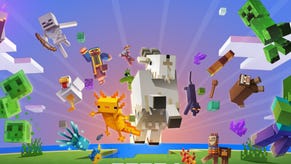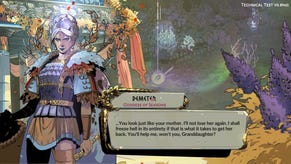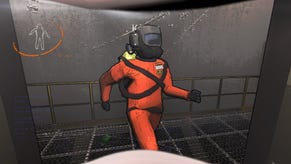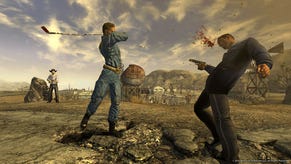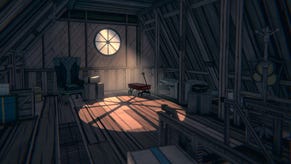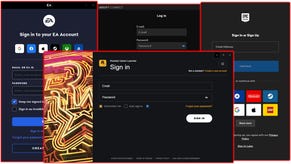Pay To Play: Notch On Minecraft And Monetisation
Mo Monetisation Mo Problems
You may have heard that changes are afoot in the world of Minecraft. You may also have heard that nothing much is changing at all. The story of monetisation, community and servers has led to plenty of discussion and rhetoric from various sides, and the issues at the heart of the situation haven't always been clear. I spent some time last week looking into the rise of for-profit Minecraft servers, a development I hadn't followed over the months. Armed with fresh knowledge and thoughts, I spoke to Markus 'Notch' Persson, the game's creator and Mojang's majority owner.
Before reading on, please note that Notch answered these questions to give his personal view and is not speaking from a legal perspective. He is not driving these decisions, having moved 'into a cozy corner...to work on new smaller games in relative secrecy', but I hoped that speaking with him would shed some light on the company's stance toward creators, community and cashing-in.
RPS: The terms around server access and subscriptions have caused a lot of confusion and noise in the last couple of weeks. Is there a simple message in your mind as to the business or ethical policy behind the rules that will be enforced from August 1st?
Notch: The first thing I want people to understand is that the rules haven't changed for the worse. Before you couldn't charge for anything in the game (you could charge for access), but we've changed that to allow for charging for things purely cosmetic things. What constitutes cosmetic is difficult to nail down as it depends on what kind of server you're running. In a creative server with no combat or mobs, swords are cosmetic, but in a server with pvp or enemies, they are not.
RPS: I use the word 'ethical' because I read this situation as being a defence of a certain way of playing together - on equal footing with no paid-for advantages. The rules seem designed to foster an inclusive environment - is that the case?
Notch: People at Mojang have different reasons behind these rules. For me personally is that Minecraft kind of became a strong symbol that "free to play" isn't the only viable option these days. The top grossing list on ios, for example, is basically only free to play and Minecraft. It feels crummy to see other people change this aspect of the game, and we're getting quite a lot of support mails from parents of children who bought virtual goods for hundreds of dollars.
RPS: When did you first notice, or become uncomfortable with, the types of monetization that you're addressing?
Notch: It's been growing steadily over the last year. I feel like the was more and more discomfort growing until it finally exploded when an employee got asked if the rules really said you couldn't charge for these things. In retrospect, we should've dealt with it earlier.
RPS: It's hard for me to look at this without taking in the wider industry picture because I spend far too much time looking at the wider industry picture. What do you think of the growth of free-to-play? Do you think it suits certain kinds of game, such as Scrolls potentially, while having no place in a game like Minecraft?
Notch: There's a lot of aspects to this. The thing I mind, the thing I dislike, is when you sucker people into games and then progressively make them more and more annoying to play unless you pay. It's kind of a bait-and-switch, which is perfectly illustrated by the term "free to play" and the fact that these games can make a LOT of money. Trials: Frontier is probably the most horrific example of this I've seen in recent times.
In game purchases doesn't have to be a bad thing. Probably the most expensive example of this for me would probably be when I played a lot of Magic: The Gathering drafts. I've also spent quite a lot of money opening crates in Team Fortress 2, but I still use the stock weapons. A couple of them has kill counters, though... a purely cosmetic thing that I love having, but doesn't give me any advantage in the game.
Another example of where mixing real money into a game can go wrong might be Diablo 3. Overall, a great game, and Blizzard tried to combat the insecure out-of-game trading by adding their own auction house. I don't know if they were also tempted by the idea of making more money or not, but regardless it ended up killing the late and end game of Diablo 3. One of their most praised changes was to get rid of the auction house.
So yes, I think there's room for all sorts of monetisation for different games. Some of them, I consider shady.
RPS: Did you ever consider that Minecraft would become a space for competitive play and are there any competitive modes that you've enjoyed?
Notch: I think for a game to excel at competitive play, it has to have extremely solid game balance. Great examples of this would be Quake 3 and Starcraft. Minecraft is not designed to be balanced, it's designed to be fun, but there are mods that add new game modes within Minecraft that can be more competitive.
The survival games (or "hunger games" as they are sometimes called, but for some reason Lionsgate didn't like that) are a great example, and I've always been a big fan of Spleefing. Some people even do fixed seed speed runs of either the vanilla game, or of custom made levels.
RPS: Do you think there's any way in which the enforcement of these rules risks harming the diversity of Minecraft and are you happy to do so in order to protect the community from certain aspects of monetization?
Notch: Diversity is not a goal in and of itself. These rules definitely remove the option to sell powerups for your character, which is a limitation of diversity, but I consider that a very good thing. I feel bad for the people who have built businesses around this, though.
RPS: There's a sense to me that a line was crossed between community ownership and certain people abusing the power of that ownership. How difficult is it to balance community involvement and creativity, while making sure that content or means of monetization are curated?
Notch: This is so complicated and confusing that I try to stay as far away from it as I can. Back in the old days when people just made things because it was fun to make mods or play with your friends and people didn't try to start businesses around it, things were so much easier. Now what do we do? Do we hire people to work full time trying to work these things out? I have no good answer to this question at this time.
RPS: Following from that previous question, why are the rules being enforced now? Is it a case of making sure the legal processes are in place or having discussions within Mojang about what is the right thing to do?
Notch: It's being "enforced" now because people with businesses want to make sure they're doing things legally, so we're trying to give them options to do so without sacrificing what we think is important about Minecraft. Honestly, I think we should've done something earlier, so I'm kinda happy people brought it up so we didn't keep ignoring this for another six months.
RPS: Is this a case where prevention would have been better than cure and did the rise of the kind of monetization processes we're seeing take you by surprise?
Notch: When I saw it rise, I assumed it was just small servers being mean. When I realized it was much bigger than that and people weren't trying to be bad but really thought they were doing things legitimately, I got scared and surprised.
I completely understand their reaction, but it's definitely gotten out of hand with misinformation. I keep asking myself if we should just let people monetize Minecraft in any way they want, and I keep coming to the same conclusion...no. We should've stopped it earlier, but it's better to stop it now than in six months.
RPS: When I first got in touch, you mentioned a 'silly little dungeon crawler' that you may nor may not be working on. Want to say anything more about that?
Notch: oh god please no why did i mention that help
So once upon a time I used to make games, and I talked about them in public and got feedback and learned things. A few of these got completed, most did not. One of them became a cultural phenomenon and all of the sudden a lot of people started listening to me and paying attention to me. This felt great.
After I stopped working on Minecraft, I started making a space game called 0x10c, and talked about it in public. It, not very surprisingly, made news, and I realized I was in way deeper than I had expected. Once I realized the game wasn't very fun, I scrapped it like I've scapped countless prototypes before, and I still get snide remarks about it to this day.
So yeah, I'm not working on anything at the moment. If I were, I'd be happy to tell small crowds about it, but not RPS.
Anyway, it started out as my VR test prototype when I was playing with that, became my WebGL test thing when I played with that, and transitioned into a test project for designing for touch screens. The game is starting to become a little bit fun, though, and I haven't had this much fun programming since the early days of Minecraft.
Will it get released? I have no idea.
RPS: Thanks for your time!
